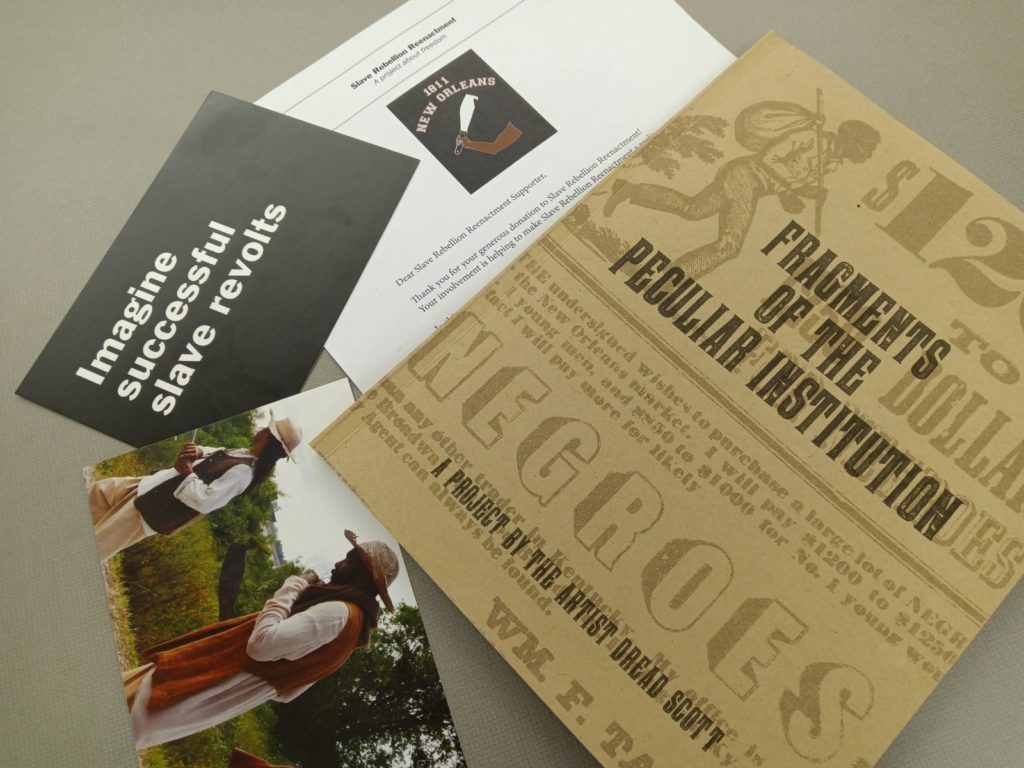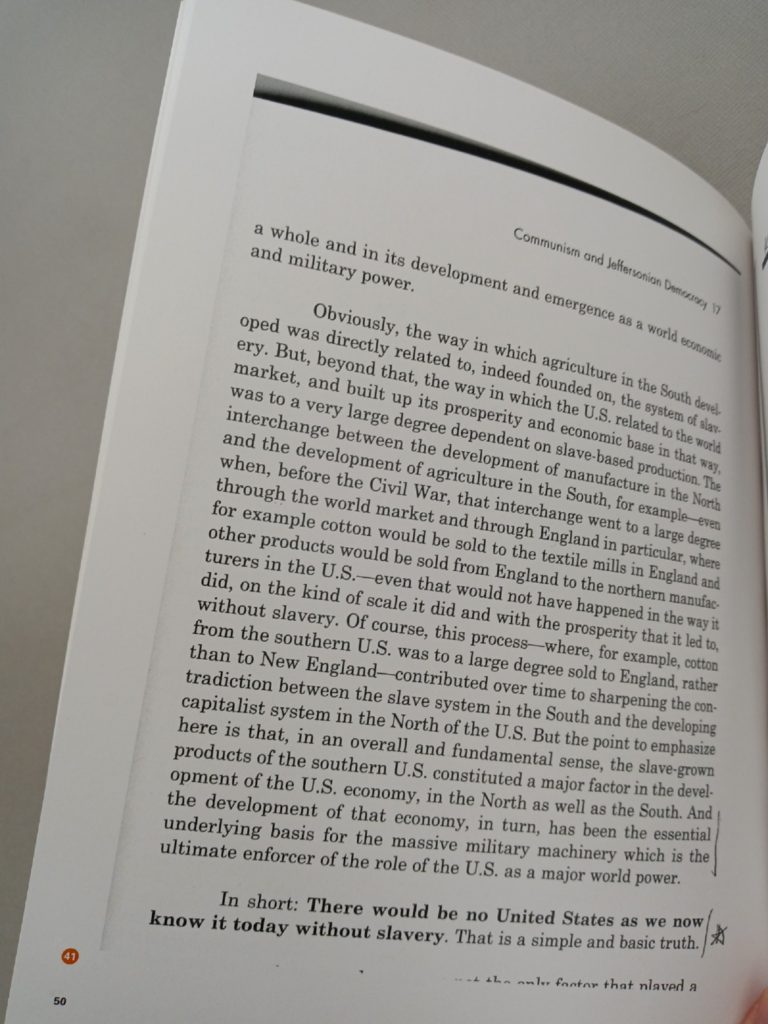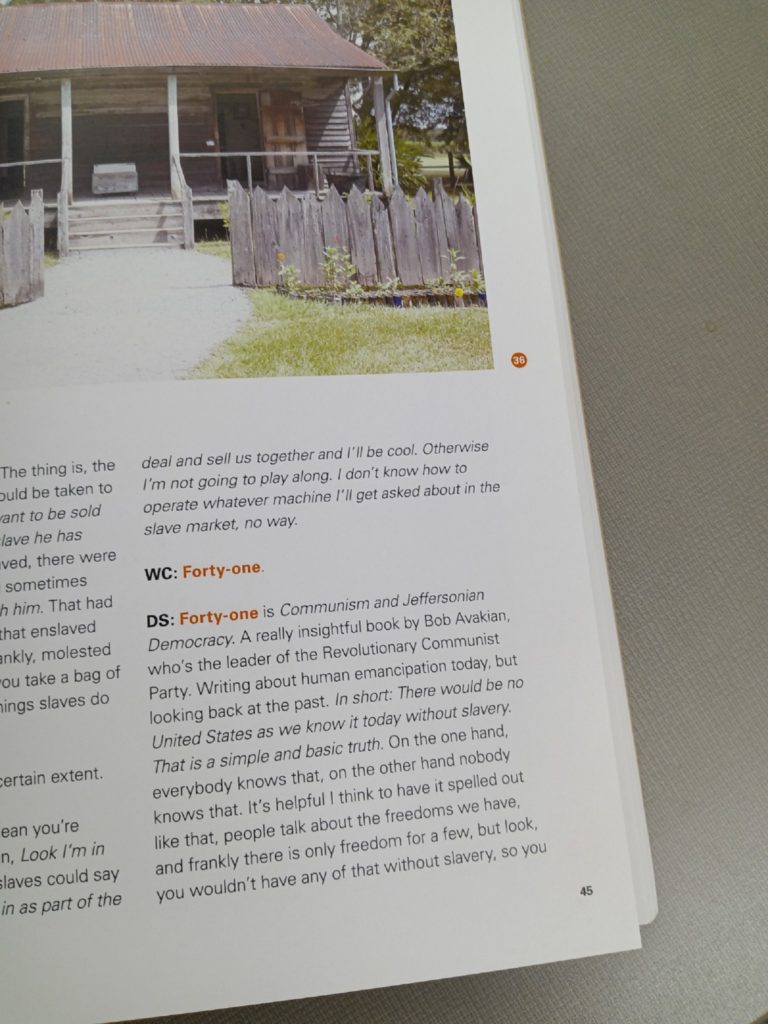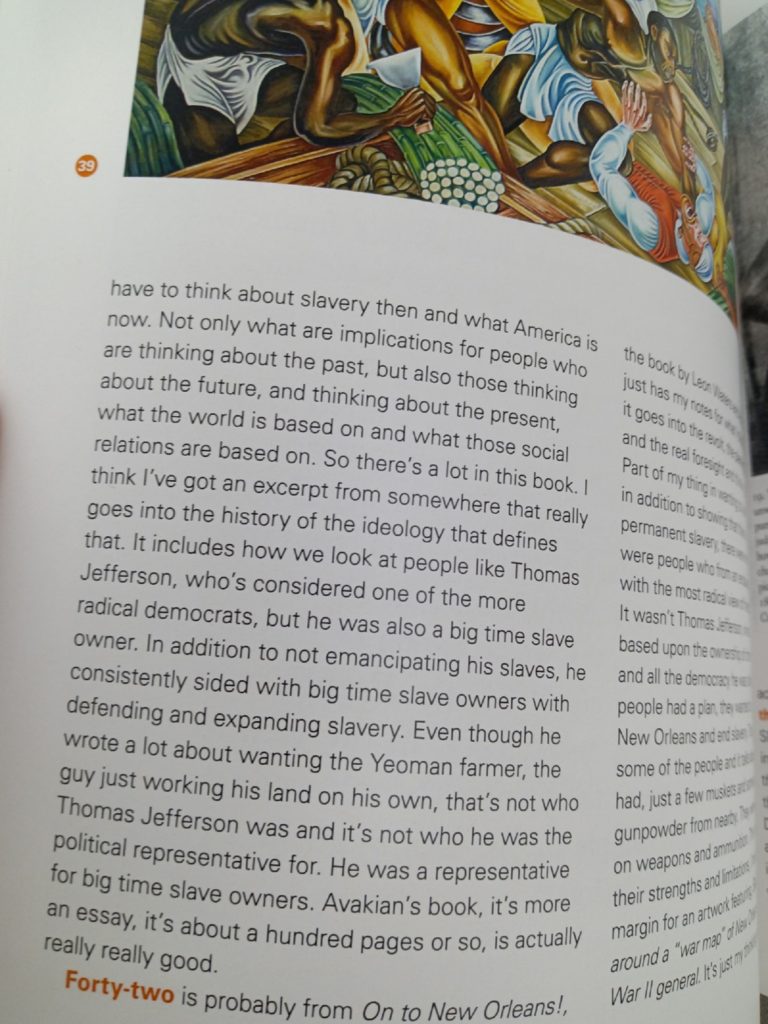Obviously, the way in which agriculture in the South developed was directly related to, indeed founded on, the system of slavery. But, beyond that, the way in which the U.S. related to the world market, and built up its prosperity and economic base in that way, was to a very large degree dependent on slave-based production. The interchange between the development of manufacture in the North and the development of agriculture in the South, for example—even when, before the Civil War, that interchange went to a large degree through the world market and through England in particular, where for example cotton would be sold to the textile mills in England and other products would be sold from England to the northern manufacturers in the U.S.—even that would not have happened in the way it did, on the kind of scale it did and with the prosperity that it led to, without slavery. Of course, this process—where, for example, cotton from the southern U.S. was to a large degree sold to England, rather than to New England—contributed over time to sharpening the contradiction between the slave system in the South and the developing capitalist system in the North of the U.S. But the point to emphasize here is that, in an overall and fundamental sense, the slave-grown products of the southern U.S. constituted a major factor in the development of the U.S. economy, in the North as well as the South. And the development of that economy, in turn, has been the essential underlying basis for the massive military machinery which is the ultimate enforcer of the role of the U.S. as a major world power.
In short: There would be no United States as we now know it today without slavery. That is a simple and basic truth.
Now, of course, slavery was not the only factor that played a significant part in the emergence of the U.S. as a world power, whose economic strength underlies its massive military force. A major historical factor in all this was the theft of land, on a massive scale, from Mexico as well as from native peoples. But, in turn, much of that conquest of land was, for a long period of time up until the Civil War, largely to expand the slave system.
– from Bob Avakian ‘Communism and Jeffersonian Democracy’ (RCP Publications, 2008) – read a selection here and buy the book here.
For more information on Dread Scott’s Slave Rebellion Re-enactment (2019) visit the artist’s website here and the project website here (where you can also purchase the book Fragments of the Peculiar Institution).




